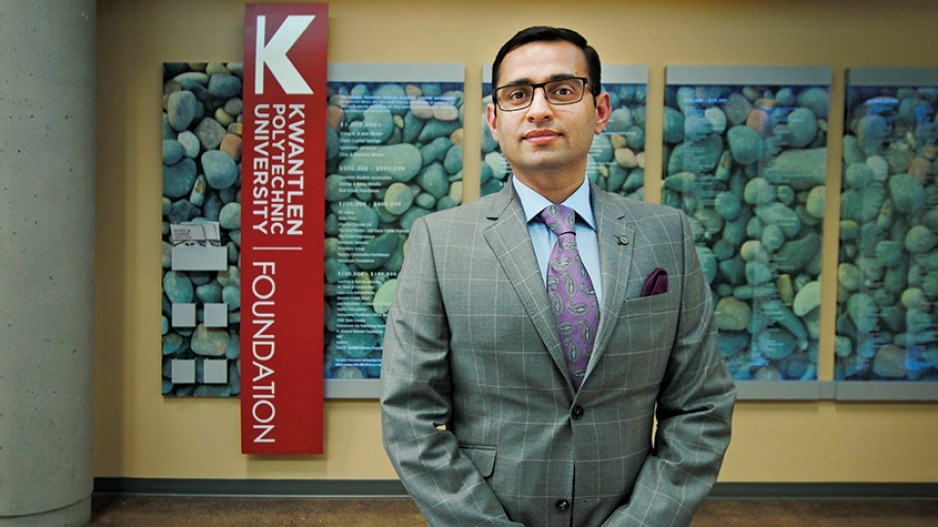To say the landscape surrounding marijuana is complicated would be an understatement.
All three major political parties in the current federal election campaign have taken different stances on what to do with cannabis, which falls under the jurisdiction of Canada’s Controlled Drugs and Substances Act. Outside of the legalization debate exists a labyrinthine system governing the production and sale of medical marijuana. Health Canada has issued 25 licences for growers across Canada; six of them are in B.C., 13 in Ontario and one each in Alberta, Saskatchewan, Quebec and New Brunswick.
Canadians can obtain prescriptions for marijuana from a doctor to treat everything from cataracts and cancer to back pain and attention deficit hyperactivity disorder.
Adding a twist to the issue is the emergence of medical marijuana dispensaries.
The City of Vancouver recently instituted a bylaw to regulate the approximately 100 existing dispensaries and any new shops seeking a permit. Retail dealers must pay a $30,000 licence fee, and shops are prohibited from operating within 300 metres of community centres, schools and other dispensaries.
While the dispensaries are illegal, the Vancouver Police Department (VPD) has stated it won’t enforce the law unless it believes a dispensary has ties to organized crime or is selling to youth. Police have executed a handful of search warrants already.
Federal Health Minister Rona Ambrose released a letter in response to the VPD’s stance, stating: “Storefronts selling marijuana are illegal and under this Conservative government will remain illegal. We expect the police to enforce the law.”
Surrey-based Kwantlen Polytechnic University recently made international headlines by offering an online Introduction to Professional Management of Marijuana for Medical Purposes in Canada course.
Deepak Anand, one of the course’s instructors and the executive director of the Canadian National Medical Marijuana Association, said the course is aimed at helping people understand a very complicated system.
He added that getting a coveted medical marijuana producer licence might be akin to winning the lottery.
“To begin with it’s a very high overhead,” Anand said. “It’s also a very uncertain environment when someone is looking to apply. There are over 1,500 applicants out there right now and only 25 licences issued. That’s a very low percentage of getting a licence.
He added that Health Canada isn’t issuing the licences as fast as many applicants would like.
“So it’s a very high-threshold, high-risk, high-capital extensive business to get into. Because the way it works is you have to demonstrate to Health Canada that you have the ability, you have the facility, you have the abilities to comply with the regulations, and only if you do that will they give you a licence. So basically you can’t just go out there and apply for a licence and say, ‘Well we’ll figure everything else out later.’”
Gill Polard, a sales and marketing director who spent 14 months as communications and client services manager for Thunderbird Biomedical Inc., which is one of the 25 licensed producers, said that even if you get a licence to grow marijuana, marketing your product can be tricky.
“What makes the advertising restrictions so difficult is the cannabis itself. It’s just not a cut-and-dried product. Each patient will have unique needs and experiences even when using the same strain. For many, this is a first-time experience and they may have additional questions or concerns. Having more information available for current and prospective patients would be really beneficial.”
Health Canada has set out strict regulations for licensed producers. Every batch of cannabis must be tested by third-party labs for cannabinoid content, particulates and harmful bacteria. Once the lab verifies that the cannabis has met Health Canada standards, it must be stored in child- and odour-proof packaging and shipped by mail or courier to the patient’s doorstep.
Part of the Kwantlen course delves into the business side of running a licensed growing operation.
Again, said Anand, things get interesting given some of the best growers have been working illegally for years and outside of regulatory oversight.
He added that pharmaceutical professionals know the logistics of selling medicine within Health Canada’s regulations, but producing a great strain of pot requires a completely different skill set.
“What they don’t have yet is somebody who knows both sides. Somebody who knows how to grow a plant and understands the regulations, and Health Canada has regulated it to the highest level possible.”
The issue has also left business associations in a tough spot.
While a third of Canadians think marijuana should be legalized, another third say it should only be decriminalized, and the remainder want laws to stay the same or for penalties to be increased.
Anita Huberman, chief executive officer of the Surrey Board of Trade, said in a statement that her organization is not backing the legalization of pot for recreational use.
Anand said that while the business of marijuana is new for Canada, as with any industry the company with the best product will invariably rise to the top.
“We’ve seen a preference in the market for licensed producers who have unique strains [of marijuana] out there. But there isn’t really a great comparison with another industry because this is just so different on a federal level. So it’s quite different than anything that’s out there right now.”




